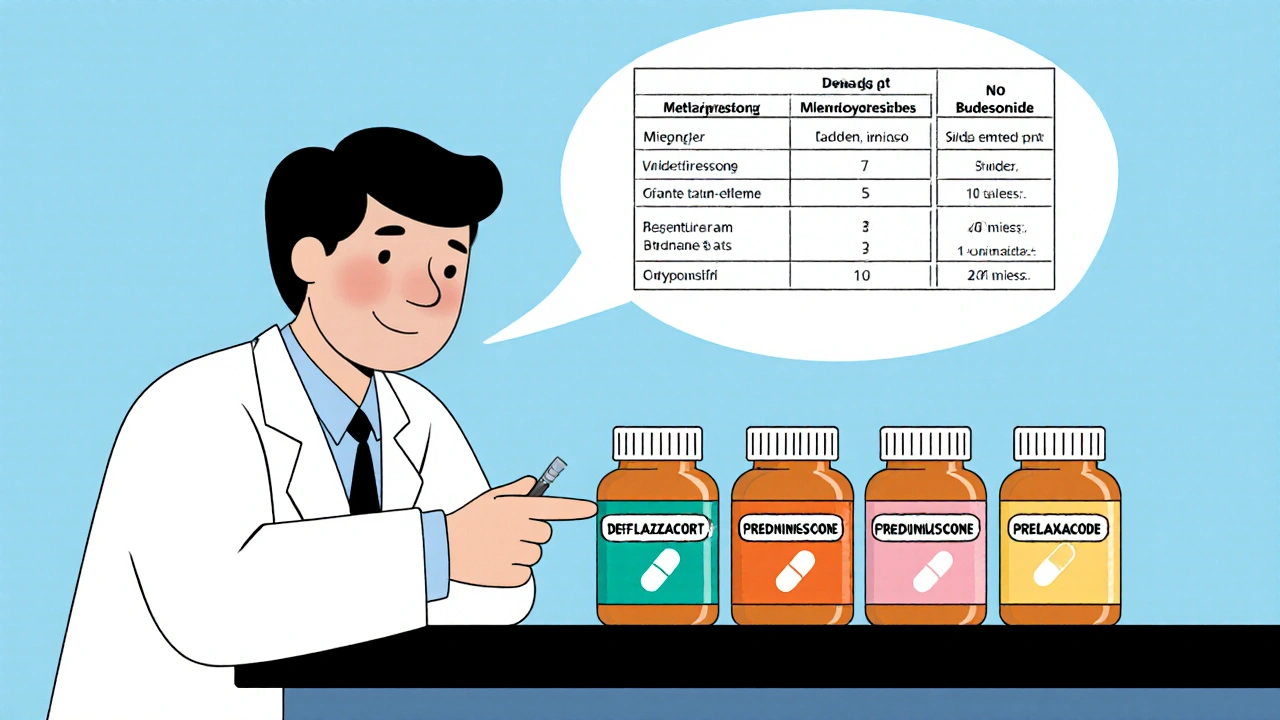Corticosteroid Side Effects: What You Need to Know Before Using Steroids
When you hear corticosteroid, a powerful anti-inflammatory drug used to calm immune responses in conditions like asthma, eczema, or arthritis. Also known as steroids, it works fast—but it doesn’t come without trade-offs. Whether you’re using a cream for eczema or pills for an autoimmune flare, corticosteroids can cause real, sometimes lasting harm if not used carefully.
The most common problem people run into is topical corticosteroids, steroid creams or ointments applied directly to the skin. Used too long or too strong, they can thin your skin, make it bruise easily, or even trigger infections. Some users report burning, redness, or tiny bumps after stopping—what’s called topical steroid withdrawal, a rebound reaction after stopping long-term topical steroid use. It’s not rare, and it’s not just in the news—it shows up in clinics all the time.
But it’s not just skin deep. systemic corticosteroids, oral or injected steroids that affect your whole body bring bigger risks: weight gain, high blood sugar, mood swings, bone loss, and even cataracts over time. People on long-term pills often feel like they’re trading one problem for another. And when you try to quit? corticosteroid withdrawal, the body’s struggle to restart its own natural steroid production after prolonged use can leave you exhausted, achy, and nauseous. That’s why doctors never just stop them cold.
What most guides miss about steroid use
Most advice tells you to "use the lowest dose possible"—which is true—but doesn’t tell you how to spot early damage. Skin atrophy doesn’t show up overnight. It starts with skin that feels paper-thin, or veins that stand out more than usual. Blood sugar spikes? Maybe you’re not diabetic, but steroids are making your body act like you are. And if you’ve been on steroids for more than three weeks, your body has started to depend on them. Stopping suddenly isn’t just uncomfortable—it can be dangerous.
The posts below cover real cases: people who used hydrocortisone cream for years and ended up with damaged skin, others who took prednisone for months and faced rebound inflammation when they quit. You’ll find guides on how to reduce steroid use safely, what alternatives exist for eczema and arthritis, and how to talk to your doctor about cutting back without crashing. No fluff. No hype. Just what works—and what doesn’t.

Calcort (Deflazacort) vs Other Steroids: Detailed Comparison Guide
A thorough guide comparing Calcort (Deflazacort) with prednisone, methylprednisolone, hydrocortisone and budesonide, covering uses, side effects, potency, and how to choose the right steroid.
October 20 2025